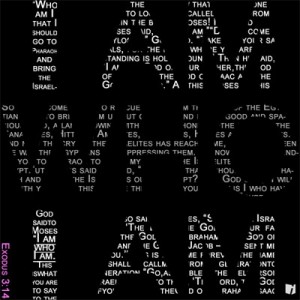The Identity Politics of G-d by Rick Garland
Spirited Reflection — Sunday, August 31, 2014
Rick Garland is the general secretary of the Student Christian Movement of Canada.
I have never been the best activist. I was raised in a fairly apolitical family. I learned early on that our family’s political philosophy was “Talking about problems makes them worse.” It’s not that my parents didn’t care about large picture issues; they simply concerned themselves with the people in their lives, being supportive and hospitable. They were (and are) caring, but private, people. Getting along with the neighbours was more important than challenging them.
My concern from an early age was about doing the right thing. All I really wanted was to please my family, be right with G-d and not cause any waves. I was very happy in my small town of Riverview, NB. We lived near the ocean; there was always plenty of hiking and fishing to do. I was looking forward to digging deep where I lived and staying close to home. My head was split between textbooks and comic books, and I enjoyed music and theatre in choirs and performance groups throughout the wider church community.
Our Scriptures are filled with similar characters – shepherds, widows, fishers, carpenters, children – people with no social standing and no personal ambitions, who sought to be faithful in the eyes of G-d. In the case of Moses, a shepherd with a speech impediment, living in slavery under the weight of the Egyptian empire, an angel of G-d appears in a burning bush. Moses is told to go to Pharaoh and to tell him to free the people of Israel. It is a central story for those of us engaged in justice work. There is a profound sense of empowerment in this story. Moses’ fears are expressed and when he seeks to relieve these fears by asking for G-d’s real identity, he is told “I AM WHO I AM.” (Exodus 3:14)
I didn’t get a burning bush. I got mentors. I got people in my life who shared their stories, who told me about their mistakes and their victories. I got theologians who talked about how they understood G-d, who sometimes had to go against their own churches, and their own governments, in order to name their understanding of truth. I listened to accounts of people whose life experiences shaped and changed their belief in the nature of G-d. When a good friend returned from a conference for Socialist youth in Pyongyang, North Korea, he declared himself a Communist. I asked how that would work for him as a Christian and he responded: “Rick, I am a Christian; therefore I MUST be a Communist.”
My greatest mentor, Eldon Hay, was a professor of world religions during my undergraduate studies. He did three things differently in his classroom than my other professors:
- He insisted we address him as Eldon.
- He made us sit in a circle.
- He made us use pronouns in the first person singular: I.
Having to shape my thinking and speaking with the word “I” was the beginning of an internal revolution in my life. Who was this “I” that I had to name daily? What was “I” apart from my church, my family, my community? As my reflections grew deeper, I began to realize I am the sum of many things: I am male. I am white. I am middle class. I am physically able. I was born into a legacy that gives power to me for all these things in this society. I have this power because of history, because of capitalism, because of racism and patriarchy and homophobia and so many systems that empower some for the sake of others.
My Christian journey may have begun at baptism, but my ownership and acceptance of a life of Christian ministry and activism began when I was able to say “I AM WHO I AM”.
Among youth, identity politics have become key for engagement in faith-based justice work. At Rendez-Vous 2014, a national United Church of Canada gathering for youth, young adults and their leaders, radical inclusion was a critical element in the process of the event. All participants were encouraged to name the pronouns they preferred as personal identity: “I prefer he”; “I prefer they”; “I prefer she”; “I prefer ze”. The growth of diversity and how we even understand diversity was evident at this gathering. The undertone is that G-d is the source of our diversity, and we participate in Creation as we express it. The message is “I celebrate you as you are, maybe even in ways you still don’t accept yourself. Now let me tell you about my world.”
I remain a faithfully transformed (albeit sometimes reluctant) activist to this day.









